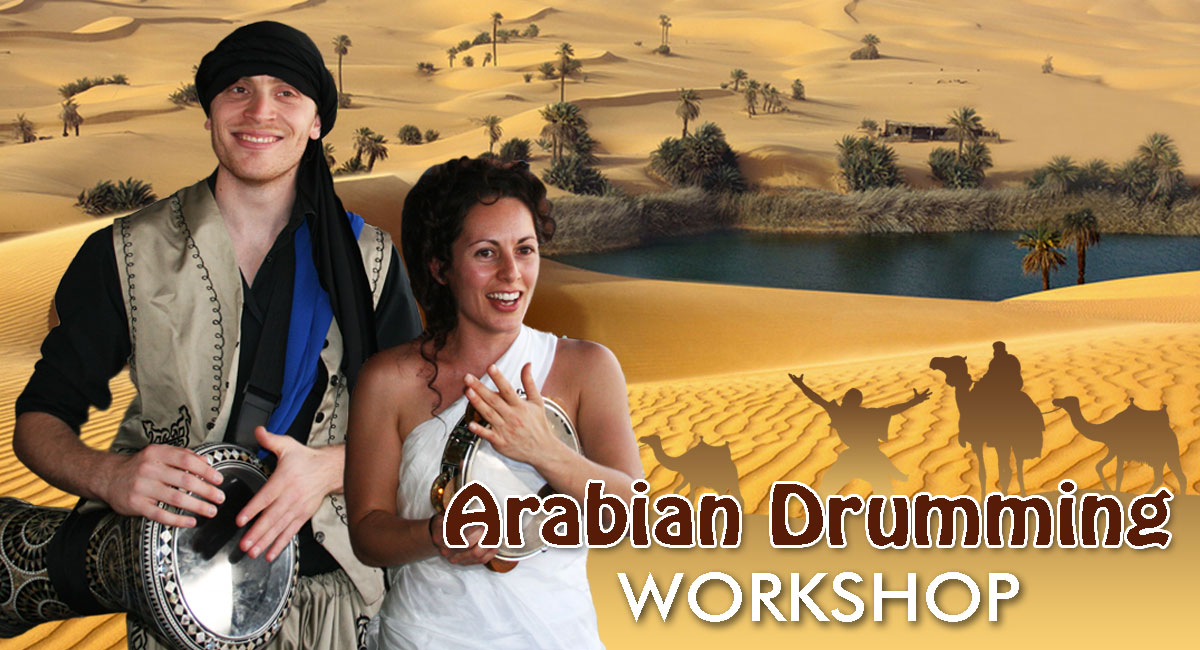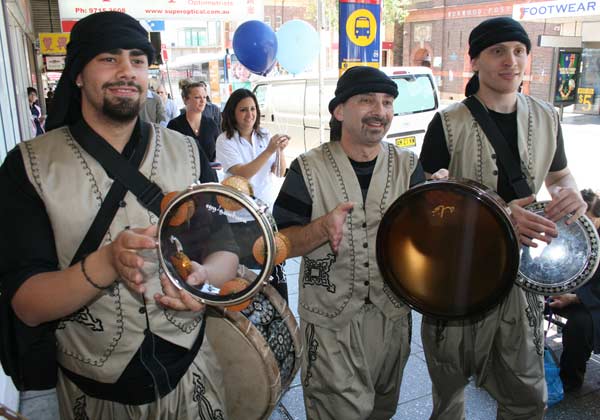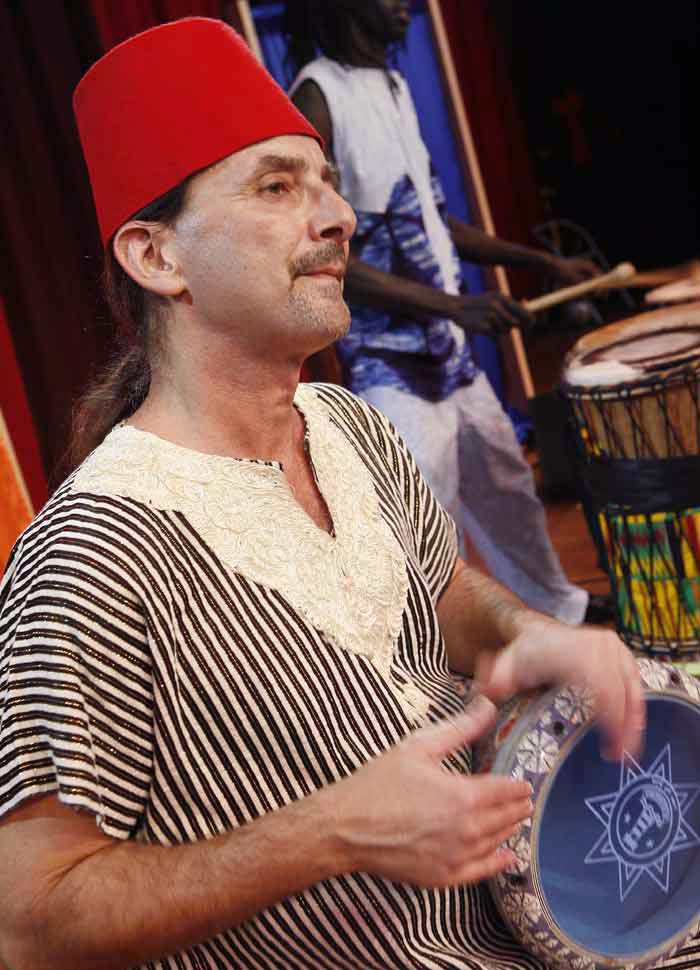
About
Like much of sub Saharan Africa drumming is often a significant component of the music that signifies the start and end of notable occasions, such as religious holidays, weddings, births, graduation ceremonies, or events of national or local significance.
Our Arabian drumming workshops provide an exciting experience highlighting the rhythms of Egypt, Lebanon & the Middle East. During the show every child has the opportunity to play one of our Arabic drums (tabla/tableh, doumbeks, darabukkas), learn to sing an Ululation (high-pitched tongue trill) and have fun with some belly dance moves! An exciting show suitable for multi cultural & team bonding days that is especially popular at schools with lots of children from Arabic backgrounds.
Workshop Options
- A choice of 30 minute, 60 minuet, or 90 minute workshop program
Session Includes
- 1-3 x Musicians/Facilitators
- A captivating drumming performance
- Every Child playing a drum for the duration of the show OR having a turn on a drum & performing body & vocal percussion
- Children learn about Arabic culture through music & movement

Did you know?
Arabic Drumming Overview
Arabian music is synonomous with belly dancers & rich lilting rhythms. The drums behind the musical tapestry are goblet shaped drums – dumbek, tabla, darabuka (different names in different countries), deep bass drums – Tuble Tubla Tableh. The ensembles will often include reeded flutes & tambourine like instruments (Req). Music & particulary drums play a significant part in occasions of note. Weddings from the Middle East to North Africa are puctuated by the sounds of drums & flutes as people come together to celebrate the joining of the new families.
Historically the music/drumming traditions emerged from nomadic peoples and consequently tends to be based on the soloist or small ensemble. The music and instruments evolved & changed along with various movements of Arabic empires into Europe. Originally an oral traditition, more recent times has seen western approachs to orchestration & notation standardise many of of the odd or complex rhythmic forms, which appear to have been discarded in favour of the more even cycles of 2 or 4 beats.


General Notes
- 150 – 200 Students per performance for the mass participation shows
- Up to 30 students for the smaller group sessions
Suggested durations
Early Stage 1 & Stage 1 – 30 minutes
Stage 2 & 3 (Ages 8 to 12) – 30 to 60 minutes
Stage 4, 5, 6 (Ages 12 —>) – 60 to 120 minutes
What to Wear?
Usual School clothes or Loose fitting/PE clothes & sports shoes
Requirements
Hall or empty classroom with enough room for the children.
For the larger shows in the hall a microphone on a stand may be helpful.
For bookings & other information contact us on
1300 189 187
